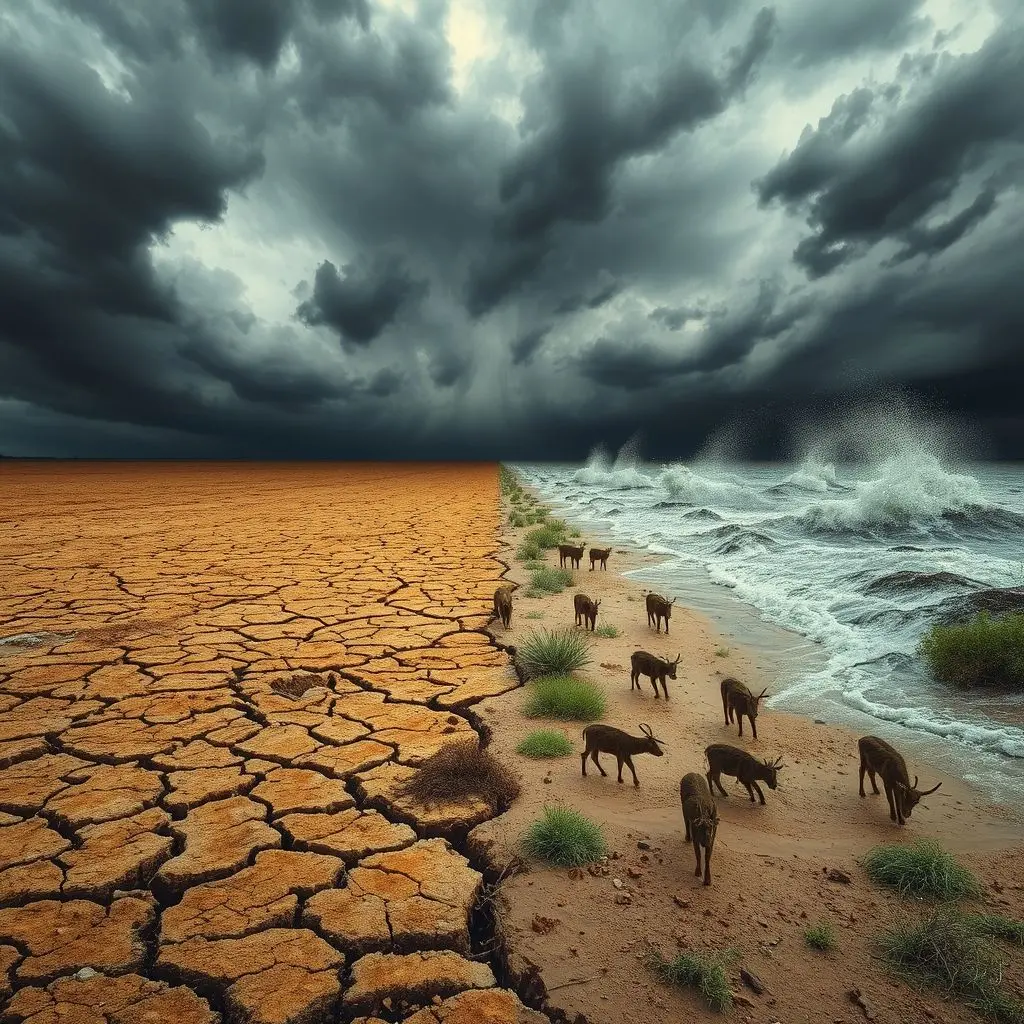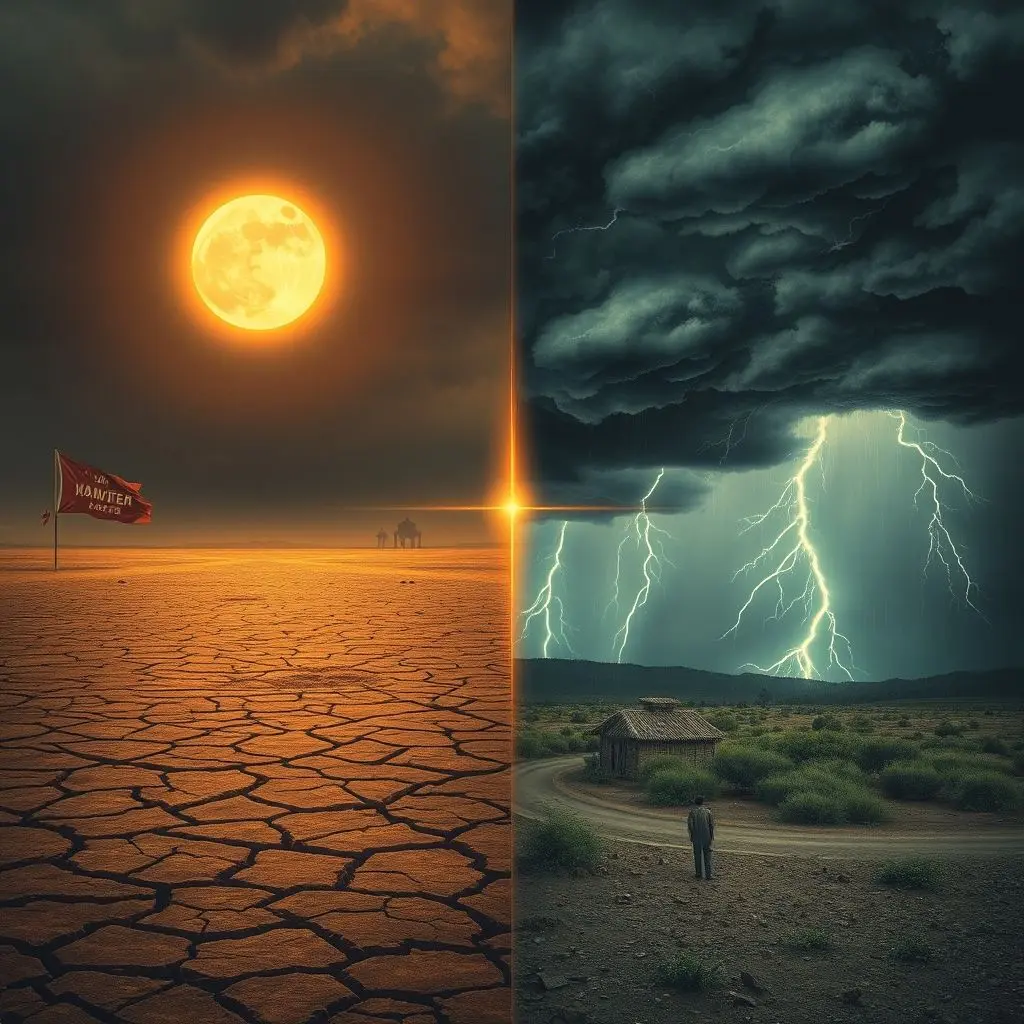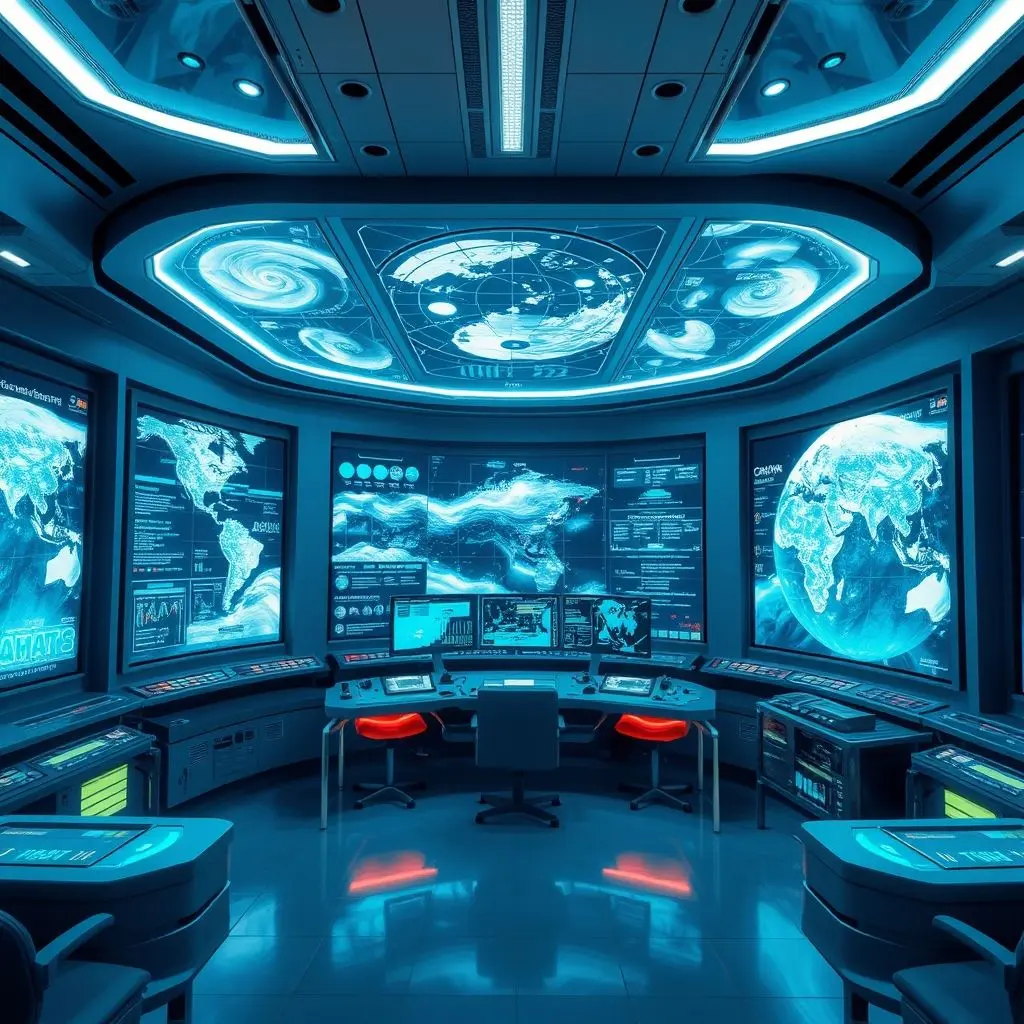Imagine waking up to the day’s forecast not as a prediction, but as a promise. Sunny skies for your weekend plans, a gentle shower arriving precisely when your garden needs it, and not a hint of disruptive storms in sight. It sounds like a utopian dream, a world where the unpredictable fury of nature is tamed, replaced by a tailor-made climate precisely suited to our needs. We’ve often fantasized about this level of command over the elements – ensuring perfect conditions for agriculture, guaranteeing safe travel, and eliminating the devastating impact of hurricanes, droughts, and blizzards.
The allure is undeniable. Bumper harvests every year, optimized for sunshine and rain. Air travel free from delays caused by fog or turbulence. Coastal cities safe from storm surges. The power to summon rain to arid lands or disperse life-threatening storms before they form. On the surface, perfect weather control seems like the ultimate technological triumph, a way to solve some of humanity’s oldest and most persistent problems.
But pause for a moment. As captivating as the vision of wielding control over the very atmosphere is, it immediately conjures a storm of complex questions. Who gets to decide what ‘perfect’ weather looks like? If one region needs sunshine for tourism, and another needs rain for crops, whose need takes precedence? Could such immense power truly be shared equitably, or would it inevitably become a tool of control, perhaps even conflict, between nations or groups?
This isn’t just idle speculation; it delves into the profound ethical, environmental, and geopolitical implications of wielding power on a scale previously unimaginable. It’s a concept so vast, so potentially world-altering, that it demands deep consideration beyond the simple desire for a sunny day.
Before we delve deeper into the incredible possibilities and daunting challenges of holding the reins of the sky, take a moment to watch this short video that quickly visualizes some of these compelling ideas:
Table of Contents
The Dream Scenario: A World of Perfect Climate Control
Let’s fully embrace the optimistic vision for a moment. What would life look like if we genuinely possessed the technology to dial in the weather? The benefits could be transformative:
Agricultural Revolution: Farming would become a science of precision. Crops would receive the exact amount of sunlight and moisture needed at each stage of growth, leading to unprecedented yields and potentially eradicating food shortages globally. Farmers could avoid the heartaches of drought or flood ruining their year’s work.
Disaster Elimination: Hurricanes, tornadoes, blizzards, severe thunderstorms – these destructive forces could potentially be prevented from forming or safely dissipated. This would save countless lives, billions in property damage, and eliminate the displacement and suffering caused by natural disasters.
Predictable Travel & Commerce: Air, sea, and ground travel would become vastly more reliable, free from weather-related delays and hazards. Supply chains would be more robust, and outdoor industries could operate without fear of unexpected interruptions.
Optimized Energy Production: Solar farms could guarantee sunshine, wind farms consistent breezes (perhaps adjusted for optimal turbine speed). While paradoxically, controlled weather might impact natural renewable sources, the control itself could potentially be used to optimize power generation, assuming the energy source for control is itself sustainable.
Enhanced Quality of Life: From planning outdoor events to simply enjoying consistently pleasant conditions, the daily lives of billions could be made more comfortable and predictable.
It paints a picture of a world less at the mercy of environmental caprice, where human ingenuity has brought order to atmospheric chaos.

Fields flourishing under perfectly controlled sunshine and gentle rain.
Beyond the Horizon: The Immense Challenges and Risks
Now, let’s ground ourselves in the chilling complexity. Achieving perfect weather control isn’t just a technical hurdle; it’s a Pandora’s Box of potential problems.
The Technical Feasibility: More Sci-Fi Than Science (For Now)
Currently, human interaction with weather is limited to small-scale weather modification techniques like cloud seeding, which aims to increase precipitation by introducing substances like silver iodide into clouds. These efforts are localized, their effectiveness is debated, and they are a far cry from controlling global or even regional weather patterns with precision.
Controlling weather perfectly would require an understanding and manipulation of atmospheric physics on an unprecedented scale. We’re talking about managing vast amounts of energy, manipulating air currents, temperature gradients, pressure systems, and moisture distribution across continents. The sheer scale and interconnectedness of Earth’s climate system make this an engineering challenge that borders on impossible with current or foreseeable technology.
Ecological Ripple Effects: Nature Always Finds a Way
Earth’s ecosystems are intricately linked to regional climate patterns. Animals migrate based on temperature and rainfall. Plants evolve specific needs for sun, water, and seasonal changes. Altering weather patterns, even with seemingly good intentions, could have unforeseen and potentially catastrophic impacts on biodiversity, disrupting habitats, migration routes, and delicate ecological balances.
What happens if changing wind patterns redirect moisture away from a rainforest? Or if eliminating thunderstorms impacts soil nutrient cycles? The interconnectedness of ecosystems means that a change in one place could have devastating effects in another, perhaps thousands of miles away. We understand only a fraction of these complex interactions.

Chaotic weather patterns and stressed ecosystems resulting from uncontrolled manipulation.
The Ethical and Societal Quandaries: Who Holds the Power?
Assuming we *could* control the weather, the questions of who controls it and for whose benefit become paramount. Would it be a global authority, national governments, or perhaps private entities? The potential for misuse is staggering:
- Inequality: Wealthy nations or corporations could potentially buy or monopolize favorable weather, leaving poorer regions to face engineered droughts or redirected storms.
- Conflict: Weather could become the ultimate weapon. Imagine creating floods, famines, or blizzards in enemy territories. Even perceived manipulation could lead to accusations and international conflict. The idea of environmental modification as a weapon is not new and is prohibited by international treaty (ENMOD), but perfect control raises this risk to a terrifying level.
- Loss of Natural Rhythms: Beyond disaster, is there value in the natural unpredictability of weather? Does eliminating struggle and adaptation remove something fundamental from the human experience or the resilience of nature itself?
Unforeseen Consequences: Playing Dice with the Atmosphere
Our climate system is non-linear and chaotic. Small interventions can potentially have massive, unpredictable effects elsewhere and later in time. We might fix the weather in one city only to inadvertently trigger a superstorm on another continent, or disrupt ocean currents crucial for global climate regulation.

Two regions experiencing engineered weather extremes, symbolizing conflict over resources.
Potential Paths Forward (and Pitfalls)
While perfect control remains firmly in the realm of science fiction, current research into geoengineering explores interventions aimed at counteracting climate change, such as solar radiation management (reflecting sunlight) or carbon capture. These are highly controversial precisely because of the unknown ecological and political risks involved. They highlight that even limited, well-intentioned climate intervention is fraught with peril.
Developing technology for true weather control would require immense international cooperation, robust ethical frameworks, transparent governance, and a humility about our understanding of complex systems that history suggests we often lack when faced with such power.

A futuristic control center monitoring and manipulating global weather patterns.
Frequently Asked Questions About Weather Control
Is perfect weather control possible with current technology?
No. Current weather modification techniques are very limited and uncertain. Perfect, precise control over weather systems on a significant scale is far beyond our present technological capabilities and theoretical understanding of atmospheric complexity.
Isn’t geoengineering a form of weather control?
Geoengineering proposals aim to *modify* the climate system to counteract global warming, often on a large scale (like reflecting sunlight). While related, the goal is different from *perfectly controlling* local or regional weather on demand, and current geoengineering ideas also face significant technical, ethical, and environmental challenges.
What are the biggest risks of trying to control the weather?
Major risks include unpredictable environmental side effects, disruption of ecosystems, ethical dilemmas over who benefits and who is harmed, the potential for weaponization, and the risk of global conflict over weather resources.
Could weather control help solve climate change?
Hypothetically, if achievable and controllable, perfect weather control *could* theoretically be used to mitigate some effects of climate change, like extreme heat or drought. However, the risks of unforeseen consequences from such large-scale manipulation might outweigh the benefits, and it wouldn’t address the root cause of climate change (greenhouse gas emissions).
The Unseen Forecast
So, while the thought of living in a world of perfect weather, free from nature’s wrath and optimized for human endeavor, is a compelling fantasy, the reality of achieving and managing such power presents a daunting challenge. It forces us to confront not just the limits of our technology, but the limits of our wisdom, our ethics, and our capacity for global cooperation. Wielding the power of the skies wouldn’t just be about convenience or optimization; it would be about holding the levers of a system we still barely understand, with ripple effects that could cascade in ways we can only begin to imagine. It’s a power that would challenge our ability to predict and control, reminding us that even with god-like capabilities, nature’s intricate dance may always contain steps we can’t anticipate.





